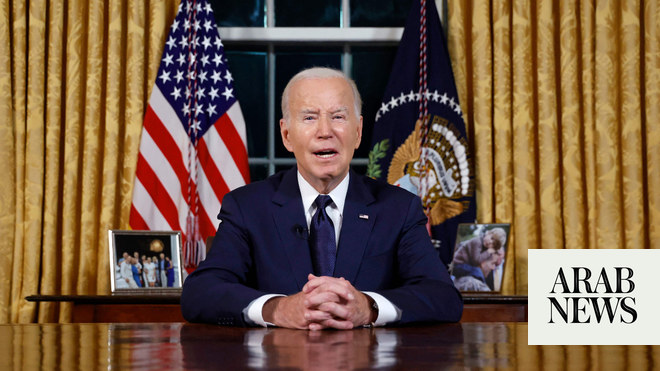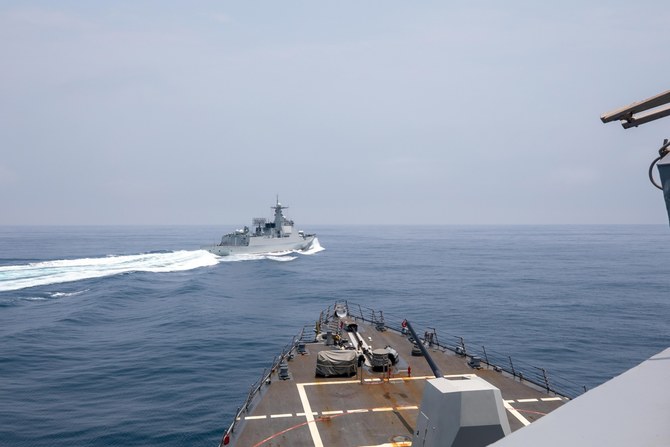
The upcoming presidential election in the US is set to be a monumental event on the global stage. In addition to the significance of the race for America’s own state of affairs, the elections, more than ever before, will determine the fate of many conflicts, influence geopolitical conditions and impact many countries in a number of avenues.
This is the case for Jordan. Caught in the middle of a drug-trafficking and Bashar Assad-consolidated Syria, an economically troubled and armed militia-plagued Iraq and a politically complex, humanitarianly disastrous Israel-Hamas war, let alone rising tensions between Israel and Iran, Jordan’s strong ties with the US have paid dividends in maintaining the country’s stability amid the region’s most turbulent times.
Nowhere was that seen more visibly than perhaps during Iran’s drone and missile attack on Israel in April, when Jordan was caught in the middle. Despite closing its airspace and taking a realpolitik response to any objects flying over its locked airspace, it was Jordan’s closest allies, with the US front and center, that aided in ensuring the security of its territories.
Even when it comes to the ongoing challenges with arms and drug trafficking at its northern border with Syria, it is the US that has been helping to strengthen Jordan’s border security, pledging $500 million in late 2022 to that end.
A seven-year-long memorandum of understanding was signed between the US and Jordanian governments in 2022, dedicating $1.45 billion of assistance to Amman. Additional funding and support packages have recently been announced, appropriating a total of $2.1 billion in US assistance to Jordan — a record amount of annual funding.
It is safe to say that the US has been Jordan’s most important and most reliable partner, as the two states celebrate 75 years of diplomatic relations. With the roles played by President Joe Biden, King Abdullah and the countries’ respective diplomatic missions, relations between the two states are now at their best.
Even beyond governments, the appeal of the US among Jordanians has recovered significantly over the past couple of months from the dip it took amid Washington’s early responses to the Israel-Hamas war. According to a poll conducted by NAMA Strategic Intelligence Solutions in May, three-quarters of Jordanians believe that American-Jordanian relations are not affected by the war in Gaza.
The poll also reveals that 31.7 percent of Jordanians identified the US as Jordan’s most important political ally, second only to Saudi Arabia with 32 percent. This is up from 20 percent when asked in November 2023. Similarly, 38 percent named the US as the most important economic supporter of Jordan, second to none, compared to 29 percent last November.
Jordan’s strong ties with the US have paid dividends in maintaining its stability amid the region’s most turbulent times.
Mohammed Abu Dalhoum
Even though there remains a wide negative sentiment when it comes to America’s role in the Gaza conflict, this does not seem to have had an impact on Jordanians’ desire for consolidated US-Jordanian ties. More than half of Jordanians reported being in favor of strengthening ties between the two governments, up by 10 points, as 36 percent indicated they would prefer maintaining relations at their present level. Equally important, more than three-quarters of Jordanians do not prefer strengthening ties with either Russia or China over their country’s relations with the US.
There are several factors shaping Jordanians’ positive attitudes to US-Jordanian relations, in spite of disagreeing with America’s foreign policy on the Israel-Palestine conflict. While the war in Gaza has a significant impact on Jordan and on Jordanian public opinion, America’s substantiated support to Jordan offset many of the disagreements. This means Jordanians are taking a realist, rationalist approach toward assessing their country’s foreign relations.
With Jordan’s most important foreign policy priorities centered around acquiring support to its economy and aiding in resolving the Israel-Palestine conflict, the US stands head and shoulders above all in that regard and Jordanians acknowledge and comprehend this reality.
However, the tremendous US-Jordanian diplomatic work done over the past four years, and especially over the past nine months, will be at a standstill anticipating the result of November’s monumental presidential election. It is unclear how a Trump administration would approach America’s support to Jordan this time around, but it has been clear and substantiated with the current administration.
Since Biden took the Oval Office, America’s appeal among Jordanians has grown substantially. In 2018, 75 percent of Jordanians would describe US-Jordanian political relations positively, before increasing to 85 percent in early 2021 and 88 percent in May 2024, according to NAMA’s polls.
US support to Jordan increased by 65 percent under Biden compared to the Trump administration. This support has been vital for Jordan’s economic recovery, political reform and security measures. Equally important, US-Jordanian trade volume increased by 32 percent between 2018 and 2023.
Granted, Jordan enjoys positive bipartisan support, but there is no denying that Amman suffered to an extent during the Trump administration. This was particularly seen in the overlooking of its historic custodianship over Islamic and Christian holy sites in Jerusalem.
Would a second Trump presidency be a case of deja vu for Jordan? Or is the Arab state, which stepped up yet again as a reliable partner for the US during the region’s most turbulent and volatile times, going to retain, through a renewed Biden administration, America’s support to maintain its strategic geopolitical significance? Amman will be anxiously watching, as the presidential race means much more for the future of Jordan than meets the eye.
• Mohammed Abu Dalhoum is the president of MENAACTION and a senior research analyst at NAMA Strategic Intelligence Solutions.












